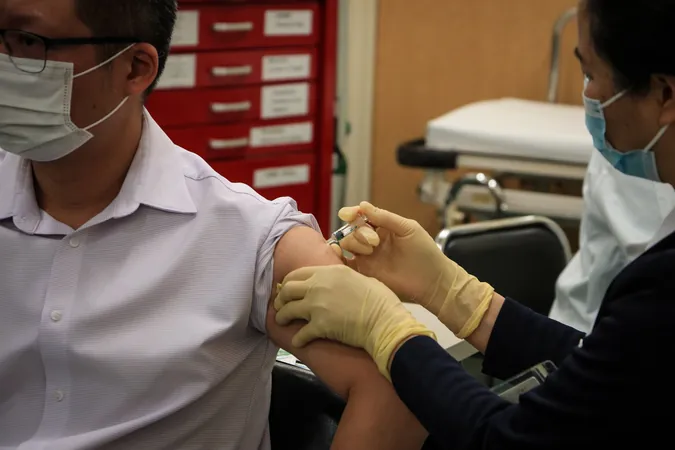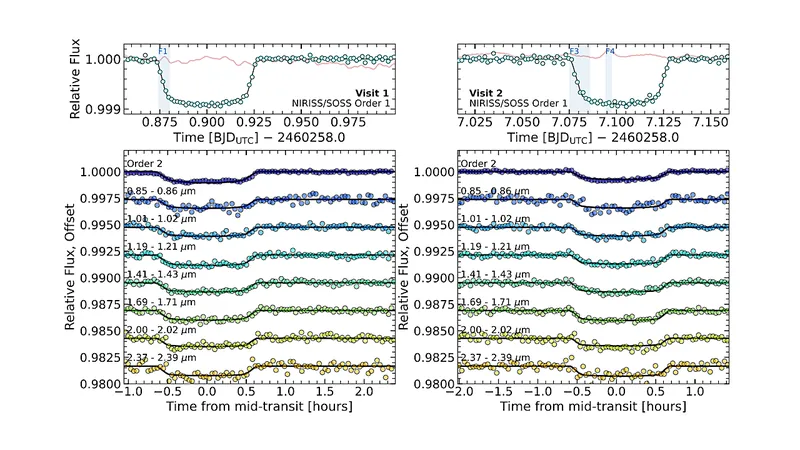
Rwanda's Marburg Virus Outbreak: Africa's Health Chief Slams US Travel Advisories Amid Growing Crisis
2024-10-11
Author: Mei
Introduction
In a striking condemnation, Jean Kaseya, the head of the Africa Centres for Disease Control and Prevention (Africa CDC), criticized the United States for issuing travel advisories against non-essential visits to Rwanda amidst a Marburg virus outbreak. Kaseya stated that such warnings are "not fair" and asserted that they do not reflect the treatment Rwanda and the continent deserve.
Outbreak Statistics
The health ministry reported that the outbreak has led to 13 fatalities, predominantly among healthcare workers, within a span of just two weeks. Despite the sobering statistics, Rwandan officials insist that the situation is under control. However, the anxiety among frontline healthcare workers is palpable.
Healthcare Workers' Perspective
Maria, an anonymous intensive-care nurse in Kigali, shared her deep-seated fears, "What scares you the most is seeing colleagues from the same profession dying... I can’t stop telling myself that I might be the next." Her sentiments echo throughout the healthcare community, as many colleagues are battling illness and isolation due to the virus, with cases of fatalities being reported.
About the Marburg Virus
The Marburg virus is known to have a high mortality rate, with the World Health Organization (WHO) estimating that about half of those infected will succumb to the illness. The virus is transmitted through contact with the bodily fluids of infected individuals, such as blood and sweat. While there is currently no approved vaccine against Marburg, Rwanda has initiated trials with doses provided by the Sabin Institute, a US-based non-profit. So far, 200 healthcare workers and their contacts have received vaccinations with plans to expand this effort as more supply arrives.
Africa CDC Response
In response to the outbreak, the Africa CDC has also dispatched 5,000 test kits to Rwanda and neighboring countries to enhance cross-border surveillance. Yet, Maria and her colleagues are left to navigate the crisis largely unprotected; she has yet to receive the vaccine herself but remains dedicated to her work. "I am a nurse... we have to fight it, but the fear is constant," she stated.
Global Concerns and Precautions
The concern over the virus's potential spread into Europe prompted authorities in Germany to temporarily close part of Hamburg's central station after a medical student returning from Rwanda exhibited symptoms. Fortunately, both he and his companion tested negative for the Marburg virus.
U.S. Travel Advisories
The US Centers for Disease Control and Prevention has marked Rwanda with its second-highest level of travel alert, advising against non-essential travel due to the outbreak. This heightened alertness has led neighboring countries—Tanzania, Uganda, and the Democratic Republic of Congo—to increase border surveillance to deter possible spreading of the virus, with Burundi establishing an emergency treatment and isolation center.
Public Health Measures in Rwanda
Rwandan authorities are also making significant strides in public health measures, including limiting funerals for Marburg victims to 50 attendees and implementing rigorous screening processes at airports. Health Minister Sabin Nsanzimana emphasized that the outbreak has been challenging to manage due to the virus's initial symptoms closely resembling malaria, which is prevalent in the region.
Testing and Treatment Initiatives
Mass testing initiatives are underway for individuals exhibiting symptoms such as high fever and muscle aches. Meanwhile, Rwanda has secured 5,100 vials of remdesivir, an antiviral previously employed in combating Ebola, to assist in managing the outbreak.
Emotional Toll on Healthcare Workers
As the battle against the Marburg virus continues, healthcare workers like Claire, another nurse who asked for anonymity, face the grim reality of lost colleagues. "I have lost a colleague who was dear to me," she mourned, highlighting the emotional toll this outbreak has taken on those committed to saving lives. Both Maria and Claire hope for better days ahead as vaccination efforts ramp up, signaling a glimmer of hope in an otherwise daunting battle against the Marburg virus.


 Brasil (PT)
Brasil (PT)
 Canada (EN)
Canada (EN)
 Chile (ES)
Chile (ES)
 España (ES)
España (ES)
 France (FR)
France (FR)
 Hong Kong (EN)
Hong Kong (EN)
 Italia (IT)
Italia (IT)
 日本 (JA)
日本 (JA)
 Magyarország (HU)
Magyarország (HU)
 Norge (NO)
Norge (NO)
 Polska (PL)
Polska (PL)
 Schweiz (DE)
Schweiz (DE)
 Singapore (EN)
Singapore (EN)
 Sverige (SV)
Sverige (SV)
 Suomi (FI)
Suomi (FI)
 Türkiye (TR)
Türkiye (TR)